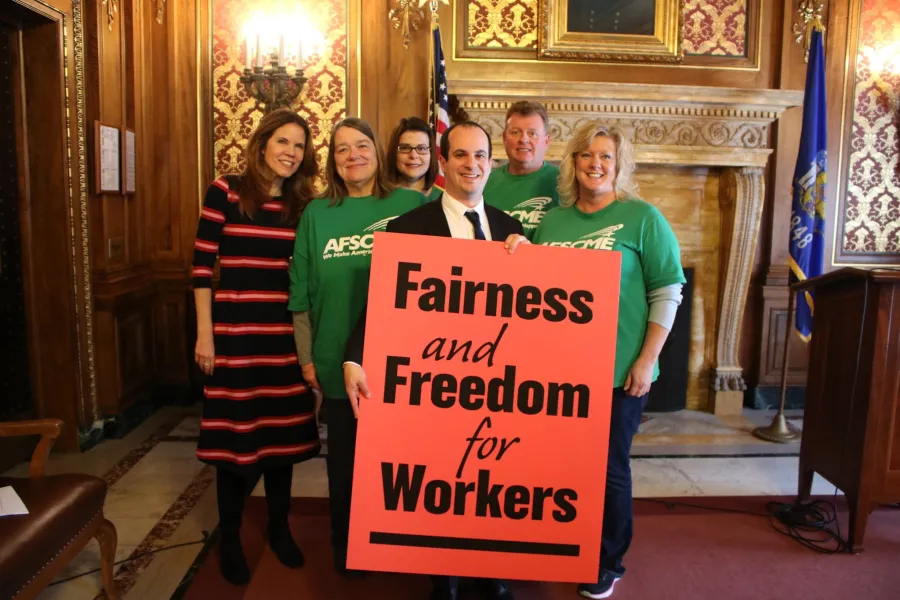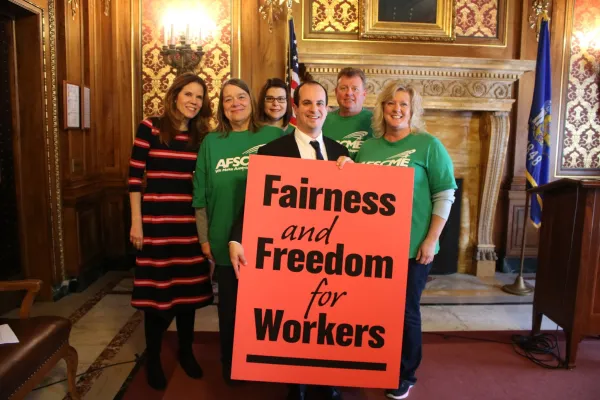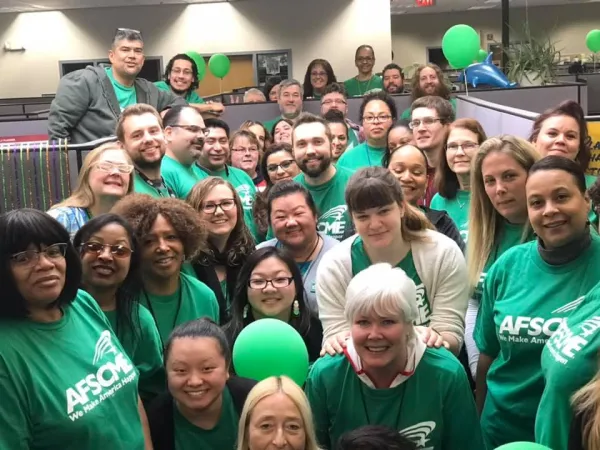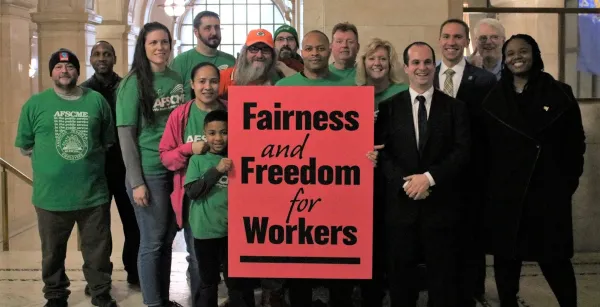AFSCME Council 32- Our Future


Our communities could not function without AFSCME members. AFSCME members truly are the definition of essential employees. We staff 24/7 facilities ranging from veterans’ care to correctional facilities. We care for children, clean schools, repair roads, maintain parks, manage unemployment, feed the elderly, and ensure the internet works at your job. Without our labor, your city, community, and our state would shut down.
Last year, it came to our attention that there were several anti-worker provisions included in the State Employee Handbook. These provisions attacked workers’ right to be fairly represented in pre-disciplinary proceedings. AFSCME members called into Governor

Evers’ office and demanded that the handbook be immediately rectified. We suspect that hundreds of phone calls and emails were sent in a matter of hours. Elected representatives, other union members, and neighbors even joined in the action. The same day that workers and allies demanded change, Governor Evers’ Department of Administration walked back the policies. When workers speak up, change can happen overnight!
But we are facing an uphill battle. Most AFSCME members must organize without an employee contract. Although this is a tremendous hindrance to codifying and negotiating benefits, wages, and working conditions, AFSCME members haven’t shrunk from the challenge. We’ve had to organize in smarter ways and build our power from the ground up. We can’t rely on service-model unionism; we have to be engaged and organize for every benefit we gain. In the long run, it has made a stronger union.

AFSCME Wisconsin is deeply dedicated to building and developing a new generation of bold, life-long labor activists who stand up and fight for ourselves, our communities, and the folks we serve. We are actively engaged in building power at worksites and growing our membership. We are working to reform the way the public and politicians view public workers, not as servants, but as core, essential employees who make our communities possible.
